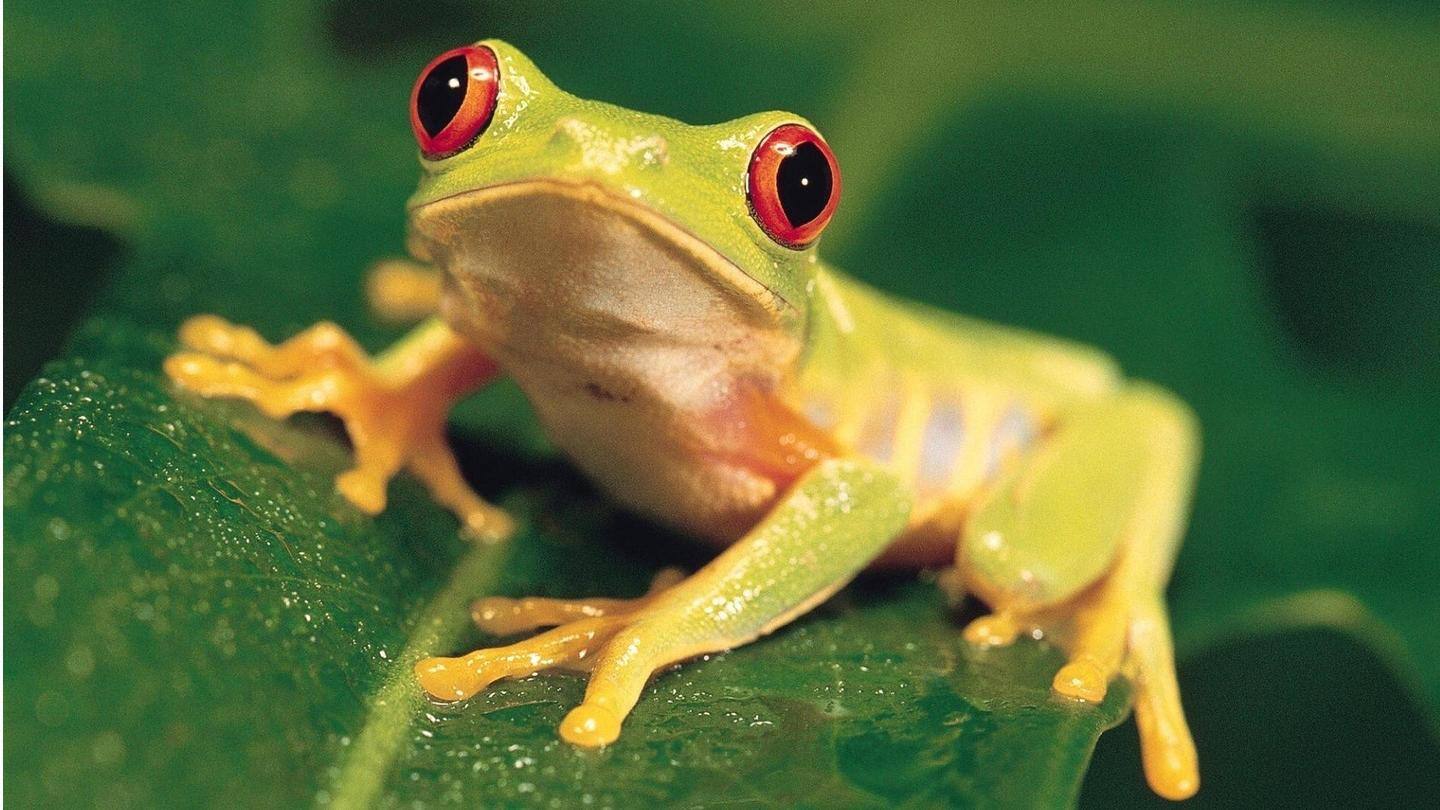
DU researchers discover new frog species in Western Ghats
What's the story
A team of researchers from Delhi University has recently discovered a frog species from the Western Ghats and named it after former vice-chancellor Professor Deepak Pental, according to a statement.
The discovery was made during a comprehensive study on a considerably large, common, yet confusing group of Indian frogs genus Minerva (common name: Minervaryan frogs), carried out over a period of nearly 10 years.
Information
New species was identified based on multiple criteria
The new species was discovered from the Western Ghats biodiversity hotspot that extends along the southwest coast of the Indian Peninsula. The new species was identified based on multiple criteria, such as external morphology, DNA, and calling pattern.
Details
Professor Pental helped in setting up systematics lab at university
"It is a great privilege to name a frog species after Professor Deepak Pental, in appreciation of his tremendous support and encouragement for setting up systematics lab at university," said Professor SD Biju, under whose leadership the study was published.
"In systematics lab, research leading to the discovery and description of nearly one-fourth of all known Indian amphibians has been carried out," he added.
Species
Species was discovered at multiple localities in Kerala, Tamil Nadu
The new species, named Minerva Pentali, is endemic to the southern Western Ghats.
"We discovered it from wayside vegetation at multiple localities in Kerala and Tamil Nadu, while surveying amphibians during monsoon season. This species is among the smallest known Minervaryan frogs, which is probably one of the reasons it was overlooked until now," Dr. Sonali Garg, the lead author of the study informed.
Background
Researchers had discovered another species of frogs in 2019
Notably, in 2019, the same researchers had also discovered another species of narrow-mouthed frogs in the Western Ghats, in multiple localities in Kerala, and named it Mysticellus Franki, honoring evolutionary biologist Prof Franky Bossuyt, according to The Times of India.
The study was in part funded by grants from the Critical Ecosystem Partnership Fund, Department of Science and Technology, Government of India, and DU.